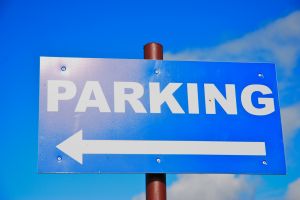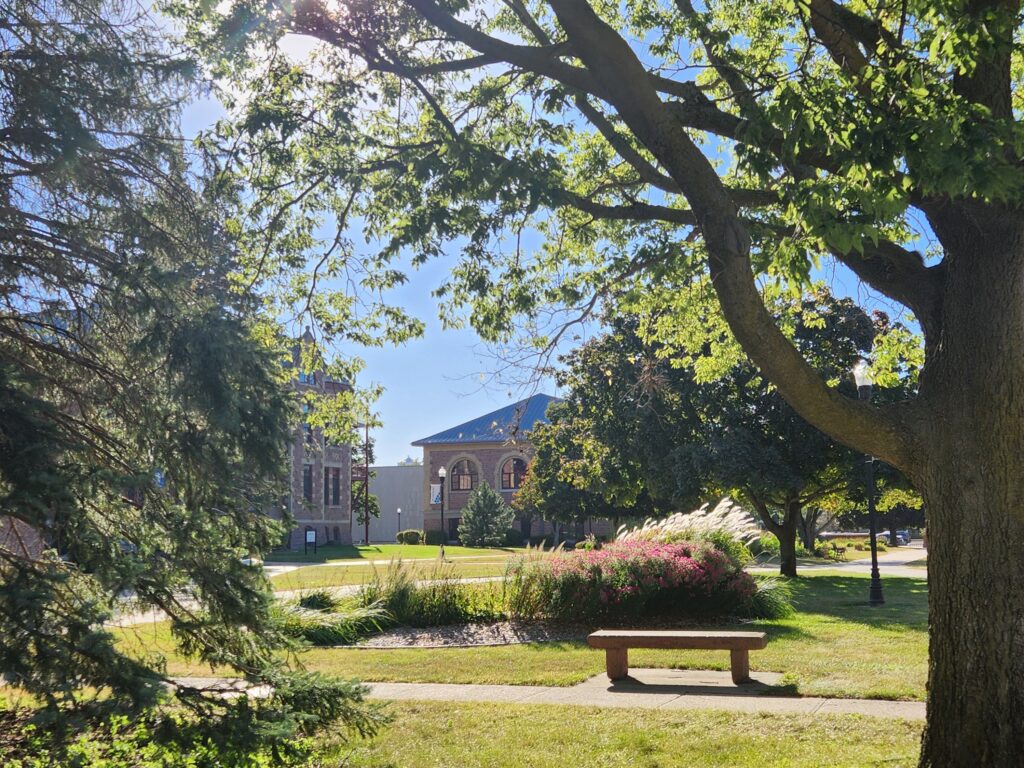Parking Problems, Slowing Down or Speeding Up?

Parking seems to be a popular topic around Dakota State University among students and faculty. Whether it’s the amount of parking spaces, the cost of parking tags, or ticketing, it seems everyone has something to say about parking policies.
Prior to spring break, an incident involving the towing of student cars on campus drew attention to snow removal notifications. Dakota State was notified by the City of Madison that it must remove snow on 7th street, a stretch of which is used for parking on the south side of campus. The City had concerns regarding the run-off from the snow, which may have caused safety issues. DSU issued a snow removal alert nearly 24-hours in advance. Alerts were sent to student e-mail accounts, however a number of e-mails were rejected due to full inboxes. The morning of the snow removal, a number of cars were still parked in the snow removal area. “We did not want to tow any vehicles,” said Marva Jerke of the DSU Physical Plant. According to Jerke, the Physical Plant staff looked up the license plates of each of the vehicles in danger of being towed in order to send e-mails and even called the students to come move their cars. In the end, only nine vehicles were towed. When asked about the incident, Jerke said she was most disappointed in the lack of response from students.
While incidents like this may arise from time to time, for the most part, Dakota State University seems to have parking matters under control. The parking committee does realize that there is a shortage of parking spots and the school realizes that they will have to expand parking in the near future. While the school explores parking options, students should keep in mind that walking a few blocks is not out of the ordinary. There are much bigger campuses where students are forced to walk much further. For now, there are three colors of parking tags available to students. Prices will be increasing a little next fall. Blue tags, which are for dorm residents, will be $45. Green tags, which are for commuters, dorm residents, and 8-plex students, will be $28. And black tags, which are for those with state-issued handicap permits, will be either $45 or $28 based on whether or not the student lives on campus. While no one ever likes an increase in prices, students should consider the cost of parking tags at some other Universities in South Dakota where parking tags cost more than $80.
Overall, DSU is very fortunate to have only the few parking problems that it does have. However, students and faculty can work together to minimize these problems. First of all, students should be sure to check their student e-mail accounts regularly. This is the main form of communication between the University and the students. Also, students should be prepared to move their cars, particularly in the winter when snow removal is an issue. And of course, everyone should try to adhere to parking rules and regulations. Should a student receive a parking ticket and choose to appeal it, it is important to remain professional during the appeal process. The parking committee is much more likely to hear the student’s story when treated respectfully. The Physical Plant would also like to add that if any student has any questions or concerns about parking policies, the staff at the Physical Plant would be happy to hear about it. They can be reached at (605) 256-5222.
Professor Nancy Moose, a member of the parking committee, said it best, “If parking is our worst problem at DSU, I’d say that’s a good thing.” While everyone seems to have something to say about DSU parking, most can agree that it is a relatively small problem that can be cleared up with communication between staff, faculty, and students.




I for one am disappointed to hear when people complain about how much a parking tag costs, simply drive 50 miles north and their parking tags are more than double if not triple what the ones here cost, and you may have to walk 3 times farther.
My biggest gripe, is not the walking a block or two, is that there are people I know of that live on campus, rarely leave campus, and park in the green commuter parking on the south side of campus. I know one car specifically that sat for weeks with snow across their windshield, not from it just snowing, but from not moving. The best change that would help is to put a limit for how long a car sits in a commuter spot, they are meant for those that live off campus, not for ones that don’t purchase a blue or for the lack of blue spots.